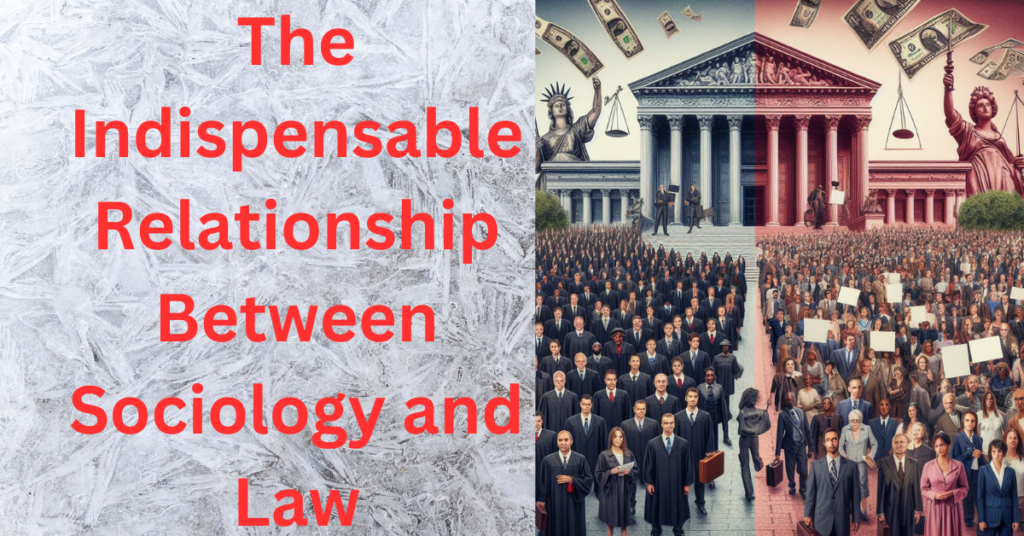The most often used but least understood and manipulated term of the past three decades is love. It is mostly controlled by popular culture in India from Bollywood movies to romantic songs—grand stories of passion and loyalty moulding public perceptions. Although love as the part cultural arena, is an informal notion seldom subject to sociological or scholarly examination. The majority of people still fail to grasp the deeper structure, meaning, and development of love, even when almost everyone engages and talks about it. This is especially important in a society where personal, romantic relationships slowly substitute traditional community bonds. People rely mostly on media-driven fantasies and social expectations when there is no formal education or reflective discussion on the nature of love; usually, disillusionment results. It is against this background that we need to wonder what love is. How has it changed? And what are its consequences in an age driven by performance, efficiency, and commercialization?

In the contemporary fast society, every aspect of life is driven by the ideals of efficiency, optimization, and goal achievement; and not even love has been left untouched by these logics. Love, once regarded as a spontaneous and transforming event, is currently sometimes seen as a quantifiable endeavour—a performance, an investment, or a goal-driven company. Partners are expected to keep availability, provide emotional labour, show up regularly, and fulfil relationship milestones. The more love is forced into this framework of productivity, the more it drains emotionally, creating anxiety, stress, and burnout instead of joy, renewal, and intimacy.
Understanding the origins of this emotional tiredness requires a distinction between two fundamental aspects of human activity: economic and recreational. Economic activities are goal-oriented and require effort; they tend to deplete our energy. On the other hand, recreational activities provide refreshment, liberation, and healing since they are naturally driven. In its purest form, love ought to fit under this second heading. Love is ideally restorative and pleasurable experience, free from stresses of everyday life. However, when it turns in to a measurable and goal-oriented activity, it transforms from a recreational pursuit into a form of labour.
Immanuel Kant’s ethical theory offers a compelling perspective on this crisis. Kant argues that individuals must be respected as ends in themselves, rather than merely as means to achieve others objectives or demands. Love loses its moral significance when relationships are based on need, validation, or social pressure such as the pressure to marry, settle down, or avoid loneliness. In such cases, love turns into a transactional system, where people are used rather than respected. Emotional dependence, driven by fear or the desire to conform, undermines the independence that love should support.
Arlie Hochschild’s concept of emotional labour further explains this transformation. In the workplace, employees often display emotions like smiling, sympathizing, and comforting to help meet corporate goals. When this type of planned emotional expression infiltrates our personal lives, love begins to resemble a performance. Partners may feel compelled to adhere to relational standards akin to business assessments, regulating each other’s emotional states and consistently validating one another’s feelings. The result is a love that feels more like a job which is predictable, exhausting, and ultimately unfulfilling.
Aristotle’s concept of philia, or good friendship, views love as a form of co-creation. This type of love is rooted in mutual moral development rather than mere enjoyment or utility. Partners in such relationships strive for a shared life filled with meaning and character, unlike workers merely completing tasks. Similarly, Socrates conception of eros, as described in Plato’s “Symposium,” sees love not as a source of pleasure, but as a philosophical challenge, a path toward self-understanding, beauty, and wisdom. Love should be experienced through honesty, openness, and conversation, rather than through control in either context. However, in today’s commodified world, love increasingly resembles financial transactions. According to an article published in Pure Sociology, love has been reduced to a routine that is expected, monetizable, and uniform. Various apps, algorithms, and curated identities have replaced spontaneity and mystery in relationships. As a result, many people find themselves feeling more estranged than happy in their connections. Love, which should create intimacy, often emphasizes feelings of loneliness instead.
This leads to what can be termed “Labourization of Love”— a distorted form of intimacy where relationships resemble labour activity. Both partners become workers in a shared emotional enterprise, continuously performing and monitoring themselves and each other. Instead of serving as romantic partners, relationships turn into secondary job sites. In this type of love, people often experience anxiety, depression, and fatigue not due to being in relationships, but because of the pressures those relationships impose. When love stops being restorative, individuals often seek relief elsewhere. However, if work depletes and emotional labour provides no respite, there is no genuine space for renewal. This psychological void frequently drives people toward mal-adaptive coping strategies, such as alcohol, drugs, digital escapism, or compulsive consumption. Thus, the rise of usage of substance and drugs culture among urban youth and stressed adults is not just a public health issue, it is a symptom of emotional alienation. Without true recreation, many resort to artificial or harmful substitutes to escape the overwhelming demands of performance-based living, both at work and at home.
What we refer to as love in contemporary society often conceals a deeper, unsettling depression. Instead of being a source of genuine happiness, it can feel like a burdensome duty. Love transforms into a battleground marked by relentless efforts, leaving people drained and exhausted. In this unending cycle of performance, many lose sight of the essence of love: a state of being present without pressure, promoting companionship without conditions, and engaging in conversation without constraints. To revitalise love, we must challenge the economic mindset that pervades people’s life. Love should not be perceived as an outcome-based activity, rather, it needs to be reclaimed as an environment where we simply exist, rather than one driven by results, a space of resonance, not a test of worthiness. True love is always based on shared experiences, and couples always try to develop a common reality through free communication, dialogue, and discourse. This engagement should be based on no judgment, encouraging interaction free from doubt, and offering joy unrestrained by conditions. Ultimately, people must reconnect with philosophical roots to illuminate the path forward. By embracing Kant’s ethic of respect, Aristotle’s vision of moral friendship, and Socrates pursuit of truth through love, people can elucidate the distinction between love and labour. Restoring love to its rightful place as a source of meaning, openness, and healing is essential in combating the rising tide of emotional burnout in relationships. When genuinely embraced, love becomes a powerful antidote to the demands of everyday life, transforming it into a refuge rather than another obligation.


